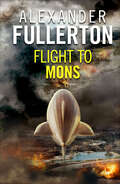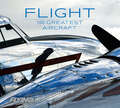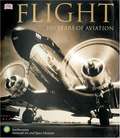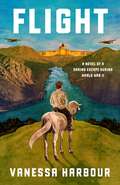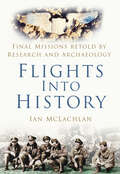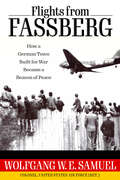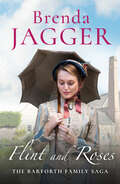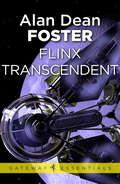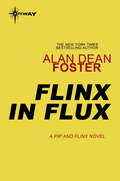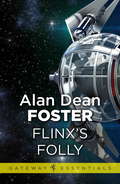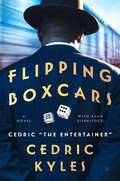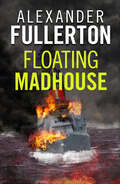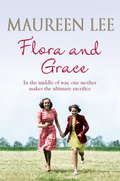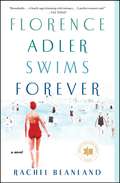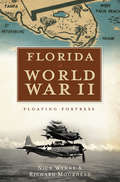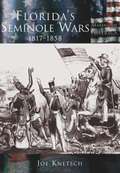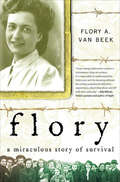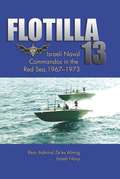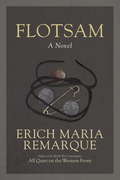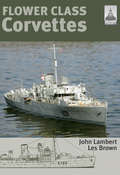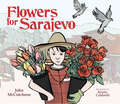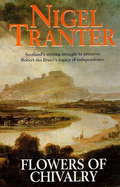- Table View
- List View
Flight to Mons
by Alexander FullertonAn action-packed and authentic First World War thriller.A young woman has vital information that could save millions of lives, and Charlie Holt is chosen to pilot a newly-built airship to evacuate her from France. In return for her intelligence he must guarantee the safety of her and her invalid mother. But retrieving two women from war-torn France is easier said than done.Holt sets out with the help of a marine and an air mechanic, but when all his best laid plans go terribly wrong, he has to finish the mission alone. Only success against the odds can save his honour… Flight to Mons is a gripping adventure packed with period and military detail, perfect for fans of Douglas Reeman and Philip McCutchan.
Flight: 100 Greatest Aircraft
by Mark PhelpsFacts, photos, stories, and specs of one hundred remarkable flying machines, from the Sopwith Camel to the 747 to the supersonic F-22 Raptor. Of all humanity&’s dazzling innovations, perhaps none captures our imaginations or fuels our inventive spirits as much as flight. In our quest to soar higher, faster, and farther, we&’ve dreamed up airborne wonders that are a sight to behold—like the supersonic F-22 Raptor, stealthily soaring above the clouds, or the Boeing-Stearman PT-17 Biplane, the beautiful starter model that helped a generation earn their wings, or the deluxe Concorde—the first passenger jet to cruise at the speed of sound. These iconic aircraft—and ninety-seven more stunning feats of aeronautical engineering—make up the world&’s most groundbreaking contributions to flight, all curated and collected here by the experts at Flying magazine. In Flight: 100 Greatest Aircraft, there&’s something for every aviation aficionado—from brazen stunt planes to far-from-pedestrian commercial jets, from military marvels to spacecraft that reached dazzling new heights. With its spectacular full-color photographs, fascinating and informative text, and a detailed specifications section, Flight is the essential book for pilots and plane-lovers everywhere.
Flight: 100 Years of Aviation
by R. G. GrantThis groundbreaking book charts the inspirational story behind humankind's conquest of the skies. From record-breaking flights and aerial warfare, to advances in aircraft design and the race for space, Flight covers the most memorable moments in the history of aviation. Flight is a gripping narrative of humankind's quest to conquer the skies and explore space.
Flight: A Novel of a Daring Escape During World War II
by Vanessa HarbourFrom Vanessa Harbour comes Flight, a middle-grade historical fiction novel about a Jewish boy and a Roma girl leading a group of horses across mountains to escape Nazis during WWII. Everyone deserves to be free and feel safe, even horses.The year is 1945 in Austria, where an SS officer and some of his men visit a stable, determined to find the Jewish boy they believe the owner is hiding there. Luckily, just as Jakob—the boy in question—is about to be found, the men are called away…but not before the SS officer shoots and kills Jakob’s favorite horse. It’s very clear then, to Jakob and his guardian, that they are no longer safe there. Traveling through Nazi territory with that many horses will be incredibly difficult and risky, but the alternative—staying—is even more dangerous.After an orphaned Roma girl named Kizzy joins the pair, the three of them travel across woods and mountains in the hopes of finding safety. Along the way are life-threatening obstacles and an injury that could prove to be deadly.Inspired by a real mission, this is a story of courage, adventure, friendship, and dancing horses.
Flights Into History: Final Missions Retold by Research and Archaeology
by Ian McLachlanIn this compelling sequel to Final Flights, aviation archaeologist Ian McLachlan has reconstructed the dramatic last flights of Second World War airmen, including the first Fortress to fall in combat from the USAAF's 447th Bomber Group; the final flight of an intruder Mosquito pursuing a German night fighter; the courage of a Lancaster pilot responsible for six lives aboard a burning aircraft; the story of a Spitfire's last flight and its heroic Belgian pilot. Exciting stories are also recounted of those whose misdirected courage saw them serve under the swastika. In reconstructing long-forgotten wartime events, often from buried wreckage, eyewitness accounts and contemporary documentation, aviation archaeologists can bring recognition to the individual flyers involved and shed new light on the air war over Britain and Europe during the Second World War. Even the discovery of small fragments can be significant. They provide evidence or prompt new research, revealing stories that offer a uniquely human dimension and reveal the hopes, fears, aspirations and pleasures of the aircrew involved. Ian McLachlan and other aviation archaeologists have now done them justice.
Flights from Fassberg: How a German Town Built for War Became a Beacon of Peace (Willie Morris Books in Memoir and Biography)
by Colonel Wolfgang W. SamuelWolfgang W. E. Samuel, Colonel, US Air Force (Ret.), interweaves his story and that of his family with the larger history of World War II and the postwar world through a moving recollection and exploration of Fassberg, a small town in Germany few have heard of and fewer remember. Created in 1933 by the Hitler regime to train German aircrews, Fassberg hosted Samuel’s father in 1944–45 as an officer in the German air force. As fate and Germany's collapse chased young Wolfgang, Fassberg later became his home as a postwar refugee, frightened, traumatized, hungry, and cold.Built for war, Fassberg made its next mark as a harbinger of the new Cold War, serving as one of the operating bases for Allied aircraft during the Berlin Airlift in 1948. With the end of the Berlin Crisis, the airbase and town faced a dire future. When the Royal Air Force declared the airbase surplus to its needs, it also signed the place's death warrant, yet increasing Cold War tensions salvaged both base and town. Fassberg transformed again, this time into a forward operating base for NATO aircraft, including a fighter flown by Samuel's son.Both personal revelation and world history, replete with tales from pilots, mechanics, and all those whose lives intersected there, Flights from Fassberg provides context to the Berlin Airlift and its strategic impact, the development of NATO, and the establishment of the West German nation. The little town built for war survived to serve as a refuge for a lasting peace.
Flint and Roses (The Barforth Trilogy)
by Brenda JaggerFaith Aycliffe knows what she wants and refuses to substitute what she needs to get it. But 19th-century Yorkshire is a man’s world and Faith merely a pawn in the games of ambitious men.Torn between the love of two men, Nicolas Barforth and his brother, Blaize, Faith must choose: Nicholas, possessive, ruthless and knows how to get everything out of success except happiness, or Blaize, who doesn’t share Faith’s adventurous spirit, but is witty, audacious and a lover of beautiful things. Wool-manufacturers and mill-owners, the Barforths are in conflict of their own with the old landed gentry. Now, as their lives full of love, hatred and struggle interweave, it may just be Faith who decides their destiny.The second novel in the Barforth Trilogy, this gripping family saga is perfect for fans of Sandy Taylor, Katie Flynn and Josephine Cox.
Flinx Transcendent (Gateway Essentials #440)
by Alan Dean FosterFlinx is the only one with any chance of stopping the evil colossus barrelling in to destroy the Humanx Commonwealth (and everything else in the Milky Way.) His efforts take him to the land of his mortal enemies, the bloodthirsty AAnn, where chances are excellent that Flinx may be executed. And he must also seek out an ancient sentient weapons platform wandering around the galaxy and then communicate with it, a powwow that could very well fry his brain. Then there are the oblivion craving assassins determined to stop Flinx before he can prevent total annihilation. With a future that rosy, it's no surprise that Flinx is flirting with disaster. Still, he's no quitter. Now he's going to need every once of his know-how, because he's venturing to places where no one's every been, to do what no one's ever done, and where his deadliest enemy is so close it's invisible.
Flinx in Flux (Gateway Essentials #523)
by Alan Dean FosterFlinx and his amazing minidrag Pip are always finding themselves in the middle of danger and galactic intrigue. So Flinx is not too surprised when they happen upon a young woman unconscious upon a river bank, deep in the jungles of Alaspin. Nor is he particularly shocked to discover that she is a brilliant scientist, abducted from a remote outpost on inhospitable Longtunnel by a group of fanatic assassins. Flinx can see no harm in returning Clarity - for that is her name - to her base before continuing on his way, although he is getting tired of having to sort out other people's problems. He does have his own life to get on with.However he is quite unprepared for the disturbing effect the beautiful Clarity has on him. And as he worries about this quite novel problem, the assassins are still at work. Stopping research at Longtunnel is their number one aim and they aim to kill anyone who gets in the way.
Flinx's Folly (Gateway Essentials #357)
by Alan Dean FosterIt's a good thing Flinx is no stranger to rouble, because he's swimming in it. After surviving an attack by a new gang of assailants, Flinx is spirited away and enlisted in a battle against an extra-galactic threat. Hidden behind the Great Emptiness, in a place where it seems matter and energy have never been, there is only evil. Pure evil that is approaching him, accelerating. This terrifying, high-stakes adventure through perilous new realms will rocket Flinx into the very heart of danger - and into the arms of the only woman he's ever loved. As he and Pip bravely travel to a place where no man or mini-drag has gone before, Flinx discovers he has a few more friends than he thought - and far more enemies than he ever imagined.
Flipping Boxcars: A Novel
by Cedric The EntertainerThe first novel from one of the original Kings of Comedy, Cedric “The Entertainer,” an engaging and entertaining crime caper that is a valentine to close-knit black families and tightly woven communities struggling to get by during the Depression and World War II. Babe is a charismatic and widely loved man, a gambler with a gift for gab that often gets him out of tricky situations. He’s also a dreamer, something he shares with his patient and loving wife, Rosie. They both yearn for financial stability and see the land they own as insurance for future generations. But when Babe and a few comrades enlist in a scheme that improbably falls apart, he endangers the little security the family has. On the verge of losing everything, what’s a family man to do?If you’re a gambler like Babe, you double down and risk it all for one big score—this time, a plan involving railroad boxcars.Will Babe succeed? Will Rosie continue to support her husband? Are the Feds on to his make-or-break scheme?Flipping Boxcars is Cedric “The Entertainer” at his most engaging best—a charming, fast-paced novel that pays homage to his beloved grandfather and a generation past, anchored by rich, multi-dimensional characters and oozing with irresistible charm.
Floating Madhouse
by Alexander FullertonA gripping historical adventure from the author of the Nicholas Everard naval thrillers.It is the summer of 1904 and Tsar Nicholas II is sending his Baltic fleet – a ragtag bunch of old crooks, untrained, potentially mutinous crews and hopelessly inefficient officers – halfway around the world to reinforce his few remaining ships in the Far East. Here the Japanese fleet under Admiral Togo has been scoring success after success against the Russians.Michael Henderson, a lieutenant caught in a forbidden tryst with the young Princess Natasha Volodnyakova on the eve of her engagement party to another man, is offered the dubious honour of sailing as an observer to Tsushima, where one of the most devastating sea battles in history will be waged. Unable to refuse, Henderson will need all his wits, and a good measure of luck, if he wants to survive… Floating Madhouse is a masterpiece of historic and military detail, ideal for fans of Douglas Reeman and Philip McCutchan.
Flora and Grace: Poignant and uplifting bestseller from the Queen of Saga Writing
by Maureen LeeThe Second World War - a mother must make a heart-breaking sacrifice in order to save her child...'Maureen Lee weaves intrigue, love and warmth into every page' MY WEEKLY'A fine writer' EVENING TELEGRAPH1944. It is spring, late morning, when Flora's life changes for ever. She is standing on a platform in the Swiss mountains, watching as a cattle train draws near. From within the wooden trucks she can hear human voices - groaning, pleading and desperate.Horrified, she begins to run alongside the train, frantically trying to help. But as the train picks up speed, a filthy bundle of rags is thrust through the slats and into her arms - 'Take him. His name is Simon.' Flora stands on the platform, a baby boy cradled against her. And although everything looks exactly as it did moments before, nothing will ever be the same again.Sunday Times bestseller Maureen Lee has written a powerful, moving story of war, motherhood and love.
Florence Adler Swims Forever: A Novel
by Rachel BeanlandAtlantic City, 1934. Every summer, Esther and Joseph Adler rent their house out to vacationers escaping to “America’s Playground” and move into the small apartment above their bakery. Despite the cramped quarters, this is the apartment where they raised their two daughters, Fannie and Florence, and it always feels like home. <p><p> Now Florence has returned from college, determined to spend the summer training to swim the English Channel, and Fannie, pregnant again after recently losing a baby, is on bedrest for the duration of her pregnancy. After Joseph insists they take in a mysterious young woman whom he recently helped emigrate from Nazi Germany, the apartment is bursting at the seams. <p> Esther only wants to keep her daughters close and safe but some matters are beyond her control: there’s Fannie’s risky pregnancy—not to mention her always-scheming husband, Isaac—and the fact that the handsome heir of a hotel notorious for its anti-Semitic policies, seems to be in love with Florence. <p> When tragedy strikes, Esther makes the shocking decision to hide the truth—at least until Fannie’s baby is born—and pulls the family into an elaborate web of secret-keeping and lies, bringing long-buried tensions to the surface that reveal how quickly the act of protecting those we love can turn into betrayal. <p> Based on a true story and told in the vein of J. Courtney Sullivan’s Saints for All Occasions and Anita Diamant’s The Boston Girl, Beanland’s family saga is a breathtaking portrait of just how far we will go to in order to protect our loved ones and an uplifting portrayal of how the human spirit can endure—and even thrive—after tragedy.
Florence Nightingale: The Wounded Soldier's Friend
by Eliza F. PollardFlorence Nightingale (1820-1910) is regarded as the founder of modern nursing. The Nightingale Museum in London includes such curiosities as the lantern she carried on her rounds to the wounded during the Crimean War, more than a thousand of her letters, and her pet owl, Athena. This volume, composed shortly after her death, contains the dramatized story of her life. It is just one of many that appeared, but is among the best examples, and has been credited with inspiring many to consider nursing careers.
Florian: The Emperor's Stallion
by Felix SaltenA Lipizzan stallion's extraordinary life, as pampered favorite of Austrian Emperor Franz Joseph, until the onset of World War One reduces his circumstances to that of a common cab horse. No one can resist Florian's charm. A pure Lipizzan stallion raised and trained to perform in the elite Spanish Riding School, his exceptional talent has no trouble getting the attention of everyone who sees him. His two friends, Anton, a loyal and loving stable worker, and Bosco, an energetic and comical fox terrier, accompany him throughout his life. Together, the trio travel together through a changing and increasingly harsh world in the years from 1901 through World War I, and after. Felix Salten's story of a beautiful Lipizzan horse and his extraordinary life is vividly depicted in this book, which was written shortly before his acclaimed book, Bambi.
Florida in World War II: Floating Fortress
by Richard Moorhead Nick WynneFew realize what a vital role World War II and Florida played in each other's history. The war helped Florida move past its southern conservative mentality and emerge as a sophisticated society, and thousands of military men were trained under Florida's sunny skies. Here are stories from some of the one hundred military bases, including Tyndall Field, where Clark Gable trained, and Eglin Air Force Base, where Doolittle planned his raid on Tokyo. Read about Camp Gordon Johnston, referred to as "Hell by the Sea," built in a swampy, snake-infested subtropical jungle, and uncover the secrets of "Station J," a base that monitored the transmissions of German U-boats prowling off the coast. This fascinating collaboration between historians Nick Wynne and Richard Moorhead reveals the lasting impact of World War II on Florida as the United States heads into the seventieth anniversary of its entry into the war.
Florida's Seminole Wars: 1817-1858
by Joe KnetschAmong the most well known of Florida's native peoples, the Seminole Indians frustrated troops of militia and volunteer soldiers for decades during the first half of the nineteenth century in the ongoing struggle to keep hold of their ancestral lands. While careers and reputations of American military and political leaders were made and destroyed in the mosquito-infested swamps of Florida's interior, the Seminoles and their allies, including the Miccosukee tribe and many escaped slaves, managed to wage war on their own terms. The study of guerrilla warfare tactics employed by the Seminoles may have aided modern American forces fighting in Viet Nam, Cambodia, and other regions. Years before the first shots of the Civil War were fired, Florida witnessed a clash of wills and ways that prompted three wars unlike any others in America's history, although many of the same policies and mistakes were made in the Indian wars west of the Mississippi.
Flory: Survival in the Valley of Death
by Flory Van BeekIn 1939, as the Nazi occupation grew from threat to reality, the Jewish population throughout Europe faced heart-wrenching decisions—to flee and lose their homes or to go into hiding, hoping against all odds to avoid the fate of being discovered. Holocaust survivor Flory A. Van Beek faced this terrible choice, and in this poignant testament of hope she takes us on her personal journey into one of history's darkest hours.Only a teenage girl when the Nazis invaded her neutral homeland of Holland, Flory watched the only life she had ever known disappear. Tearfully leaving her family, Flory tried to escape on the infamous SS Simon Bolivar passenger ship with Felix, the young Jewish man from Germany who would later become her husband. Their voyage brought not safety but more peril as their ship was blown up by Nazi planted mines, one of the first passenger ships destroyed by the Germans during World War II, sending nearly all of its passengers to a watery end. Miraculously, both Flory and Felix survived.After recovering from their injuries in England, they returned to their homeland, overjoyed to be reunited with their families yet shocked to discover their beloved Holland a much-changed place. As the Nazi grip tightened, they were forced into hiding. Sheltered by compassionate strangers in confined quarters, cut off from the outside world and their relatives, they faced hunger and the stress of daily life shadowed by the ever-present threat of certain death. Yet they also discovered, with the remarkable and brave families who sacrificed their own safety to help keep Flory and Felix alive, a set of friends that remain as close as family to this day.A tribute to family, faith, and the power of good in the face of disparate evil, this gripping account captures the terror of the Holocaust, the courage of those who risked their lives to protect their fellow compatriots, and the faith of those who, against all odds, managed to survive.
Flotilla 13
by Ze'Ev AlmogFlotilla 13 is the elite naval commando unit of the Israeli Defense Forces that specializes in maritime-related combat and counter-terrorist missions. To maintain secrecy, few of its missions have, until now, been made public. With this book, the unit s commander, Rear Adm. Ze ev Almog, unveils the amazing story of Flotilla 13. For the first time he offers details of many of the unit s operations during the War of Attrition and the Yom Kippur War (1968 1973), including the raids on the Adabiya coastal post and the Green Island fortress that resulted in heavy casualties to the enemy and a strategic change in Israel s combat arena. He candidly discusses his unit s despair following failed operations prior to this period and describes how Flotilla 13 was transformed into a unit of high morale and performance. First published in Hebrew in 2007, this revealing account of what went on is now available in English.
Flotsam: A Novel
by Erich Maria Remarque Denver LindleyFrom the beloved author of All Quiet on the Western Front, Flotsam is a terrifying portrait of Europe as the Nazi shadow falls over the continent. Political dissidents, Jews, medical students, petty criminals: Among the thousands of displaced persons traveling the unpaved roads of Europe, there are Steiner and Kern. Both have irritated officials for outstaying their two-week sojourn in Czechoslovakia. And so they must leave. Not that either has any place to go. Not in 1939. But when a man is led by a guard to the border of one country, he must try another. Until he is escorted from that one too. Living hand-to-mouth, selling shoelaces and safety pins for a few pennies, Steiner and Kern find that, remarkably, there are still pleasures to be had. Paris, for one; love, for another. For amid the heartless cruelty and cold-blooded laws of the Nazi state, there is still humanity and kindness. And there is incomparable joy in falling in love, surviving, and telling your story so it is never forgotten. "The world has a great writer in Erich Maria Remarque. He is a craftsman of unquestionably first rank, a man who can bend language to his will. Whether he writes of men or of inanimate nature, his touch is sensitive, firm, and sure."--The New York Times Book ReviewFrom the Trade Paperback edition.
Flower Class Corvettes (Shipcraft Ser.)
by John Lambert Les BrownA guide to creating models of the World War II warship, featuring history on the ship as well as crafting tips. The &“ShipCraft&” series provides in-depth information about building and modifying model kits of famous warship types. Lavishly illustrated, each book takes the modeler through a brief history of the subject class, highlighting differences between sister-ships and changes in their appearance over their careers. This includes paint schemes and camouflage, featuring color profiles, highly detailed line drawings, and scale plans. The modelling section reviews the strengths and weaknesses of available kits, lists commercial accessory sets for super-detailing of the ships, and provides hints on modifying and improving the basic kit. This is followed by an extensive photographic gallery of selected high-quality models in a variety of scales, and the book concludes with a section on research references—books, monographs, large-scale plans and relevant websites. This volume includes all the features of the regular series, but the extent has been doubled to include far more detailed drawings of a class of ship that was built in huge numbers and in many variations. Mainstay of the Atlantic battle against the U-boats, Flower class corvettes were used by the British, Canadian, French, and U.S. Navies.&“An excellent guide to an important ship in the Second World War, for modeler and maritime enthusiasts alike.&” —The Nautical Magazine
Flowers for Sarajevo
by John McCutcheonYoung Drasko is happy working with his father in the Sarajevo market. Then war encroaches. Drasko must run the family flower stand alone.One morning, the bakery is bombed and twenty-two people are killed. The next day, a cellist walks to the bombsite and plays the most heartbreaking music Drasko can imagine. The cellist returns for twenty-two days, one day for each victim of the bombing. Inspired by the musician's response, Drasko finds a way to help make Sarajevo beautiful again.Inspired by real events of the Bosnian War, award-winning songwriter and storyteller John McCutcheon tells the uplifting story of the power of beauty in the face of violence and suffering. The story comes to life with the included CD in which cellist Vedran Smailović accompanies McCutcheon and performs the melody that he played in 1992 to honor those who died in the Sarajevo mortar blast.
Flowers of Chivalry
by Nigel TranterOnce again Scotland was fighting for her survival as a free andindependent nation.Robert the Bruce's legacy, three years after his death in 1329, is indanger. With a five-year-old heir guarded by an ageing and diminishingband of lieutenants, the English King, Edward III, has seen hisopportunity. War is renewed, a puppet king set up.In the years of struggle that follow, two men stand out as leaders oftheir people: Sir William Douglas, the Knight of Liddesdale, known asthe Flower of Chivalry; and Sir Alexander Ramsay of Dalwolsey.Friends and comrades-in-arms by their gallantry and daring, they do morethan any others to save their country.Yet something is to happen between them that will cause one of the mostdesperate events in Scotland's violent and dramatic history...
Flowers of Chivalry
by Nigel TranterOnce again Scotland was fighting for her survival as a free andindependent nation.Robert the Bruce's legacy, three years after his death in 1329, is indanger. With a five-year-old heir guarded by an ageing and diminishingband of lieutenants, the English King, Edward III, has seen hisopportunity. War is renewed, a puppet king set up.In the years of struggle that follow, two men stand out as leaders oftheir people: Sir William Douglas, the Knight of Liddesdale, known asthe Flower of Chivalry; and Sir Alexander Ramsay of Dalwolsey.Friends and comrades-in-arms by their gallantry and daring, they do morethan any others to save their country.Yet something is to happen between them that will cause one of the mostdesperate events in Scotland's violent and dramatic history...
